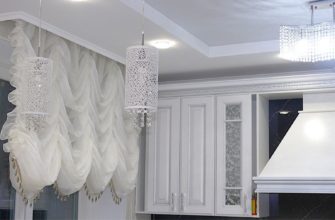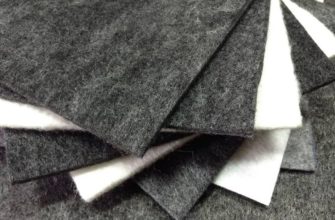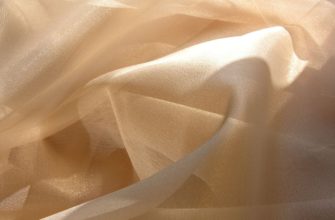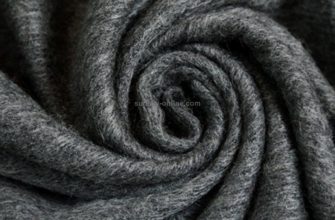Smooth surface, even unobtrusive shine on the outside, pleasant to the touch crepe satin has been popular with designers and fashionistas for several decades. Delicate, incredibly light, flowing products are highly durable.
Characteristics and composition of crepe satin
Since 1960, crepe satin fabric has enjoyed great popularity. It was first produced in China. At first, natural silk fiber was used for weaving, and since 1850, cotton threads began to be used in factories. Today, both natural and artificial fibers can be present in the composition of raw materials. Crepe satin fabric is characterized as a double-sided fabric with a smooth, glossy texture on the front side and a matte, grainy texture on the reverse side. In it, each side can become the front side in the product. The high price of natural fabric does not allow many consumers to buy products from it.
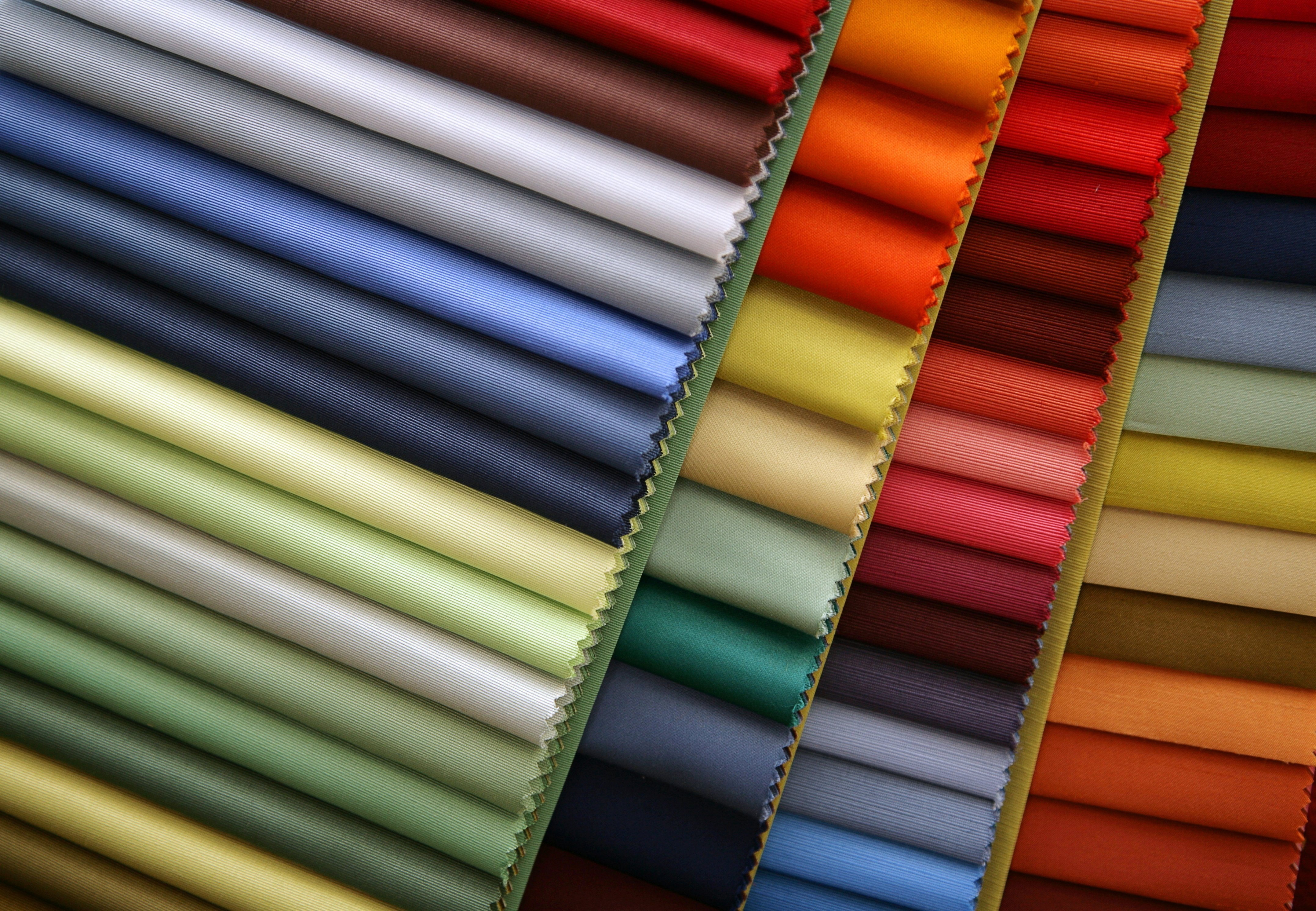
Therefore, to make the cost of the fabric affordable to the average buyer, manufacturers have developed a technology with the addition of synthetic fiber:
- acetate silk;
- synthetic polyester;
- cellulose;
- viscose.
The price of 1 meter of good material should not be less than 250 rubles. If a retail chain offers fabric at a reduced price, this indicates that a fake is being purchased. The fabric is sold in a roll, the width of which is 150 cm.
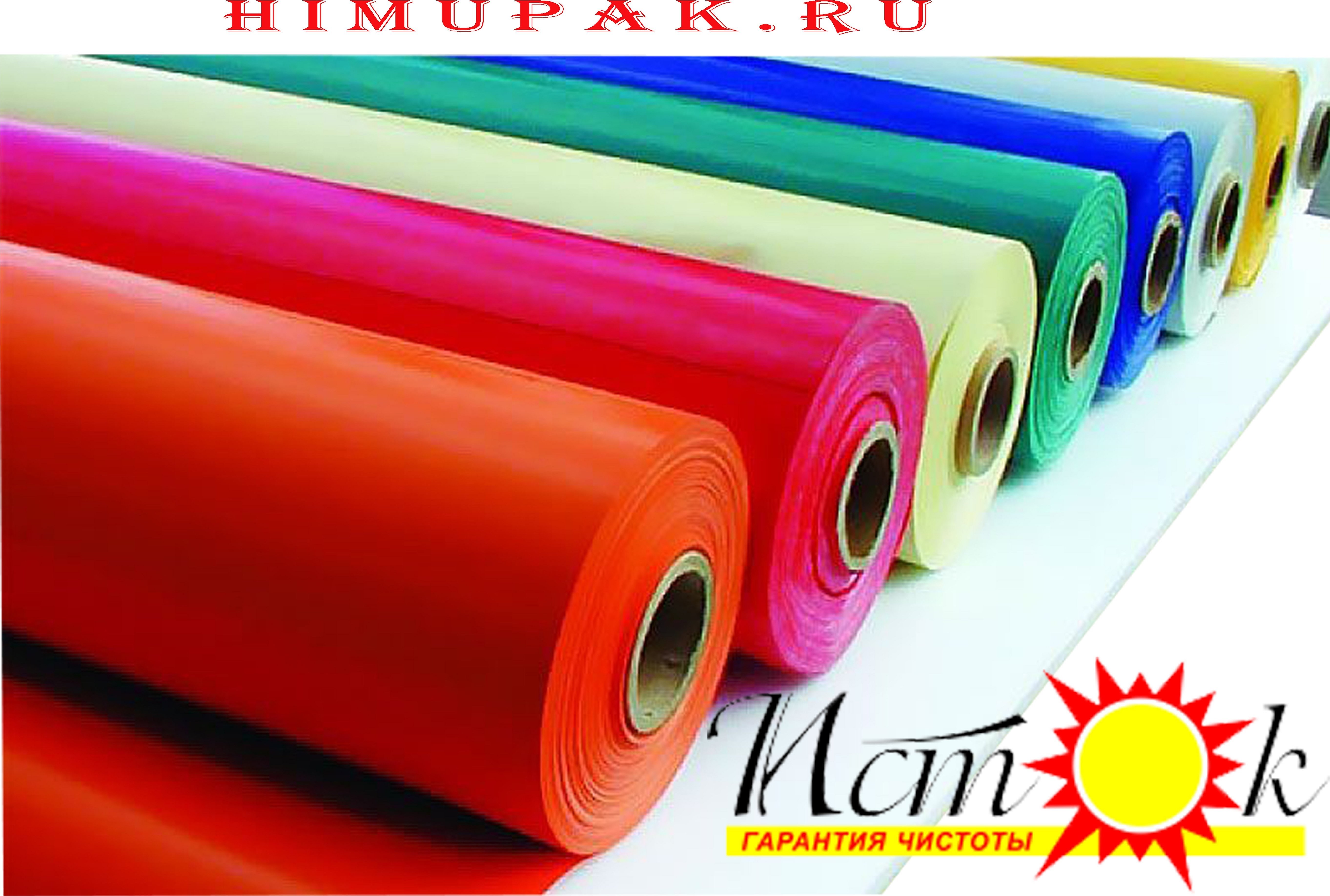
Basic properties of fabric
What kind of fabric is crepe satin? The material can be classified as a universal type of fabric. In double-sided fabric, the front and back sides are used for sewing. Combined products made from it have a special look.
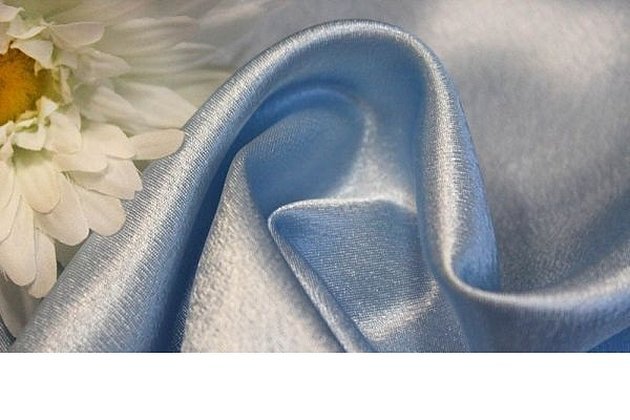
Positive characteristics of crepe satin fabric:
- Hygroscopic. The fabric absorbs and removes moisture well.
- Low wrinkling, drapes well.
- Wear-resistant. The product can withstand 200-250 washing cycles and retains its original appearance.
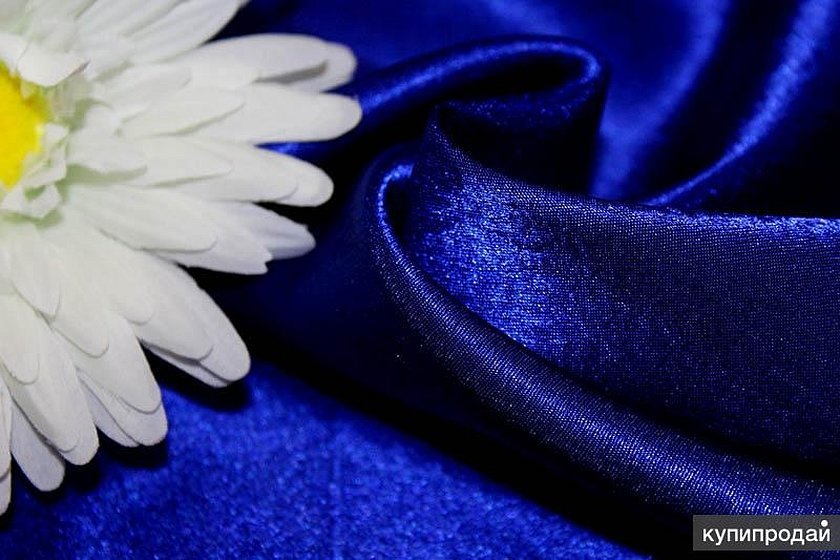
In addition, the properties of the fabric allow it to retain its shape for a long time, without fading or shedding.
In addition to its advantages, the material also has disadvantages:
- during cutting and sewing the fabric may fray;
- poor air permeability;
- In the summer, it is advisable to wear dresses that are not tight-fitting.
For your information! If you are irritated by the smoothness of your bed linen, it is better to use cotton pajamas for sleeping at night.
Production
Initially, manufacturers used only natural silk fibers to produce the fabric. Expensive raw materials were replaced by synthetic and semi-synthetic fibers. The technology of diagonal twisting of the fiber is used to produce the material. Thick and thin threads are used in the interweaving of the warp and weft threads. They are alternately twisted to the right and then to the left. This makes the fabric elastic and durable. At the end of the technological process, the fabric is steamed. After exposure to water and high temperatures, uneven unwinding of the threads occurs, which leads to crepe. The result is a fabric with a grainy texture.
Additional information! In addition to silk with crepe weave, manufacturers produce crepes from cotton, wool, semi-wool, artificial and synthetic threads. Simple fine-patterned weave of fibers creates only the effect of strength.
Strengths and weaknesses of the canvas
Despite the fact that the fabric has some disadvantages, it is very popular. Plain-dyed and printed fabrics produce bright, interesting products.
Masters find alternative solutions to problems:
- During cutting and sewing of things, the edges begin to crumble. To avoid this, tailors use some methods: they glue the edges with interlining or lay temporary overcasting.
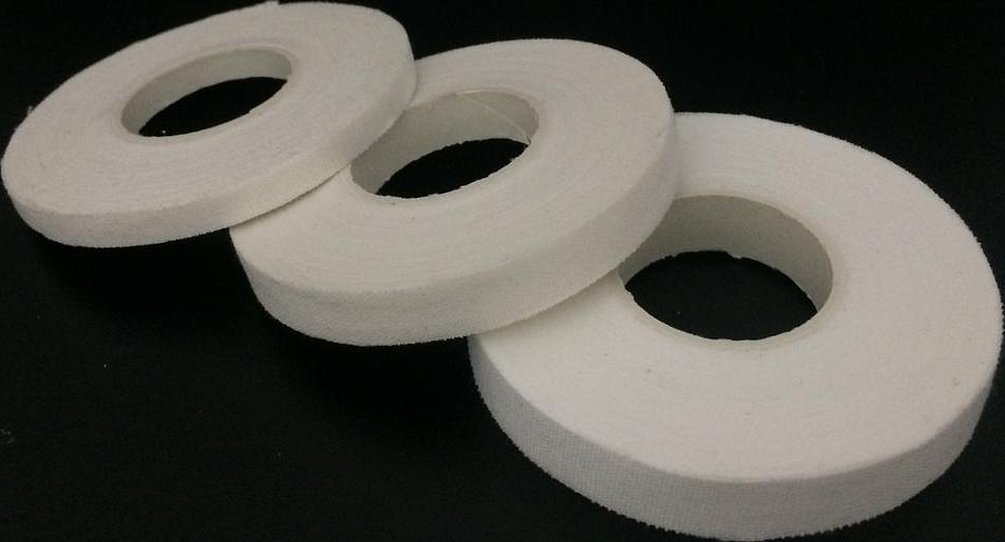
- The fabric structure is dense, so it can cause irritation or sweating. To feel comfortable in a dress, you need to make allowances for a loose fit. In this case, the air flow for the body will create comfortable conditions.
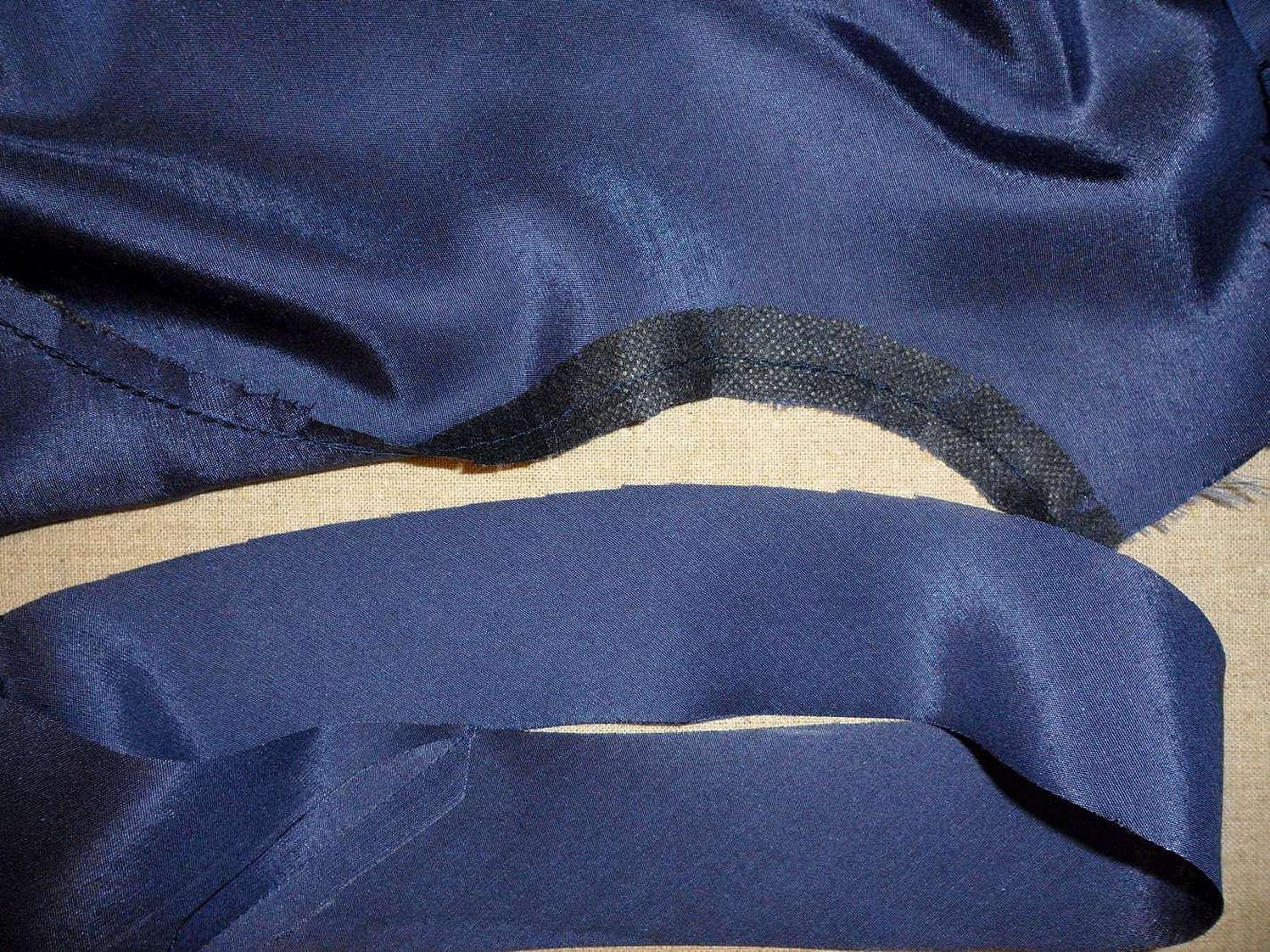
The material is very similar in appearance to satin or silk. It produces easily draped items that are practically wrinkle-free on the finished product. The fabric is used not only for sewing outfits, but also for textiles for interior decoration of residential and office premises. The structure of the fabric has a dust-repellent effect.
Fabric selection criteria
Today, natural silk is rare due to its high cost. Therefore, the retail network mainly sells products made of synthetic fibers. Before buying fabric, you need to pay attention to some of its features:
- Due to its dense structure, high-quality fabric is not translucent.
- The price of natural silk should not be low. Artificial silk of good quality is also in the price range, it should not be low.
- The presence of a strong chemical smell indicates that the material contains aggressive substances. Dyes can cause an allergic reaction or skin irritation.
For your information! The combination of two sides of crepe allows you to get beautiful spring suits, dresses, skirts and other products. The fabric combines beautifully. Its front side has a glossy appearance, and the back side is slightly rough.
What can be sewn from this fabric?
Beautiful, satin-shine fabric gives products a special charm. And any interior made of this fabric will be decorated with curtains with lambrequins, bedspreads with ruffles or decorative pillows. What can be sewn from crepe satin?

- Evening dresses. An evening suit made of yellow silk, sewn inside out with shiny trim, will look exquisite. The fabric is also used for sewing wedding dresses.
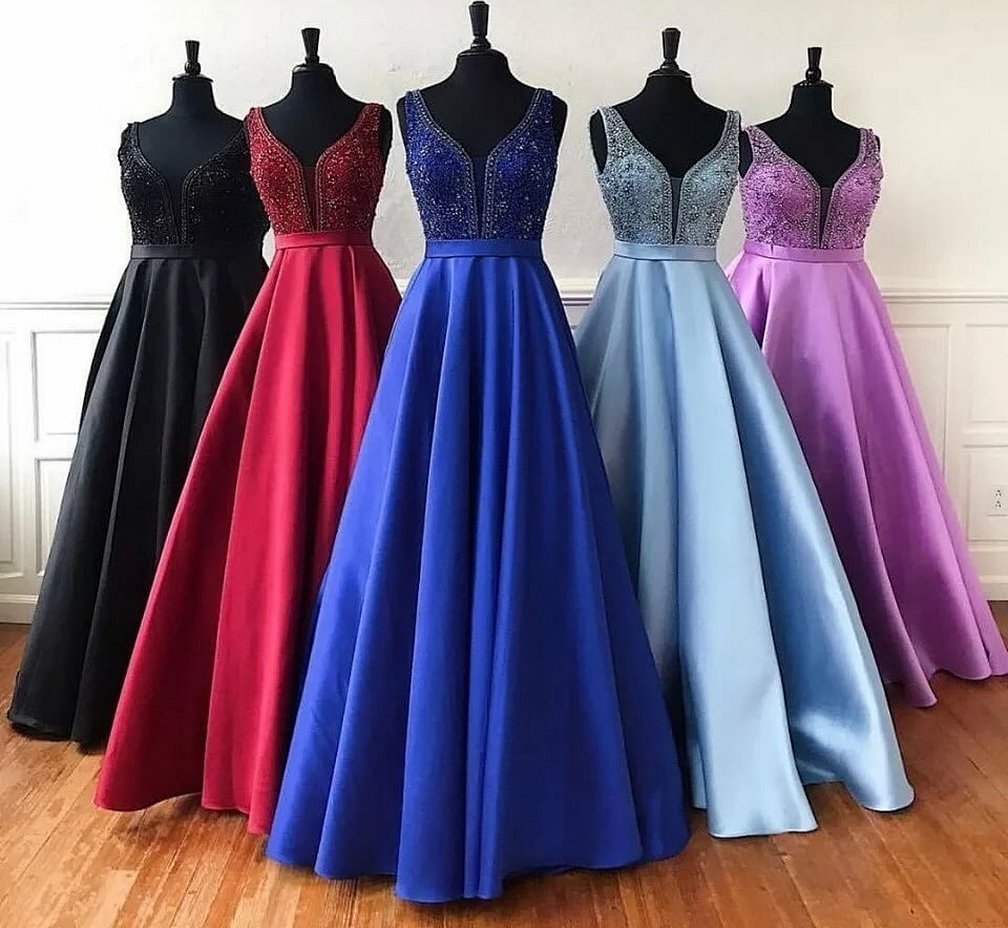
- Bedding. Textiles do not wrinkle, practically do not get dirty, and retain an aesthetic appearance for a long time. The linen is pleasant to the body, creates a soothing coolness.

- Beautiful clothes for the bedroom - pajamas, a negligee, a nightgown, as well as bedspreads and pillowcases.
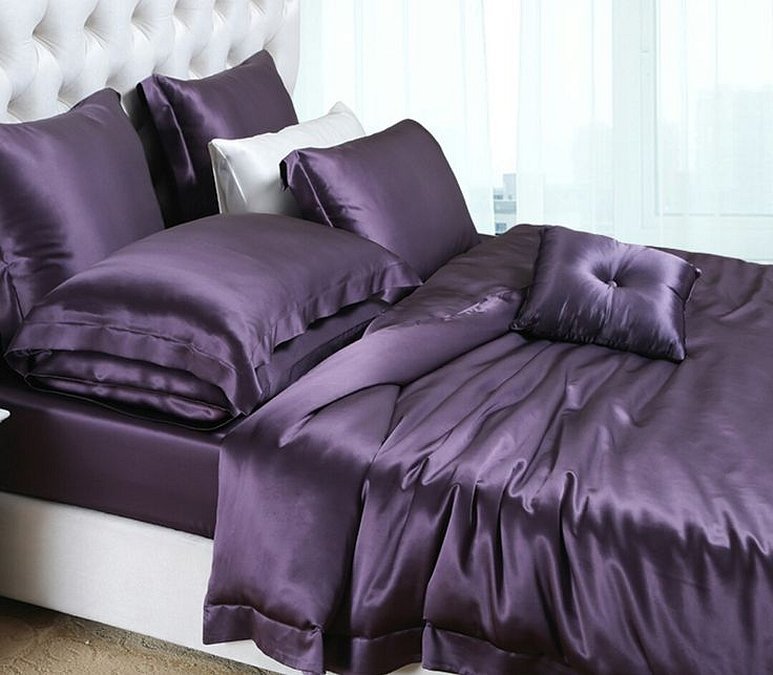
- Curtains. The material drapes well. It is used for sewing curtains, drapes, and theater curtains.
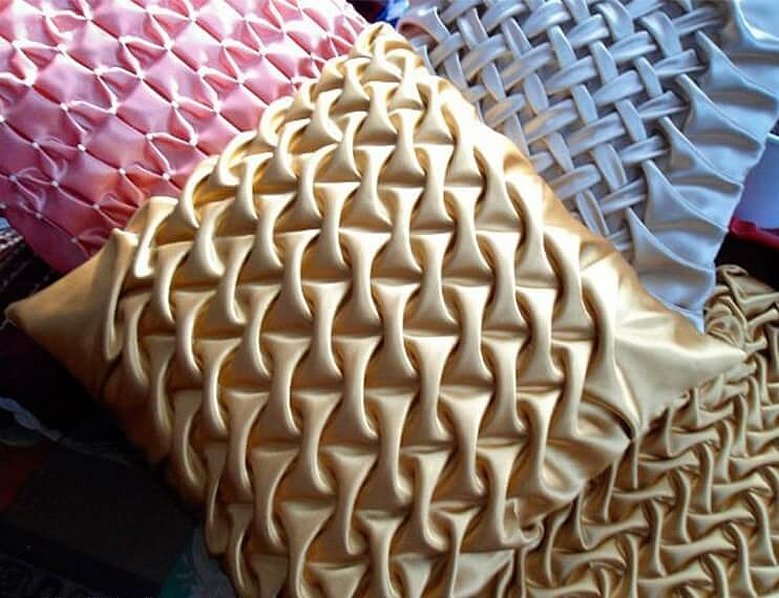
In addition, silk is used to make office blouses, summer skirts, women's trousers, New Year's costumes and other items.
For your information! Although silk is durable, it should be handled with care. Snags may occur if handled carelessly.
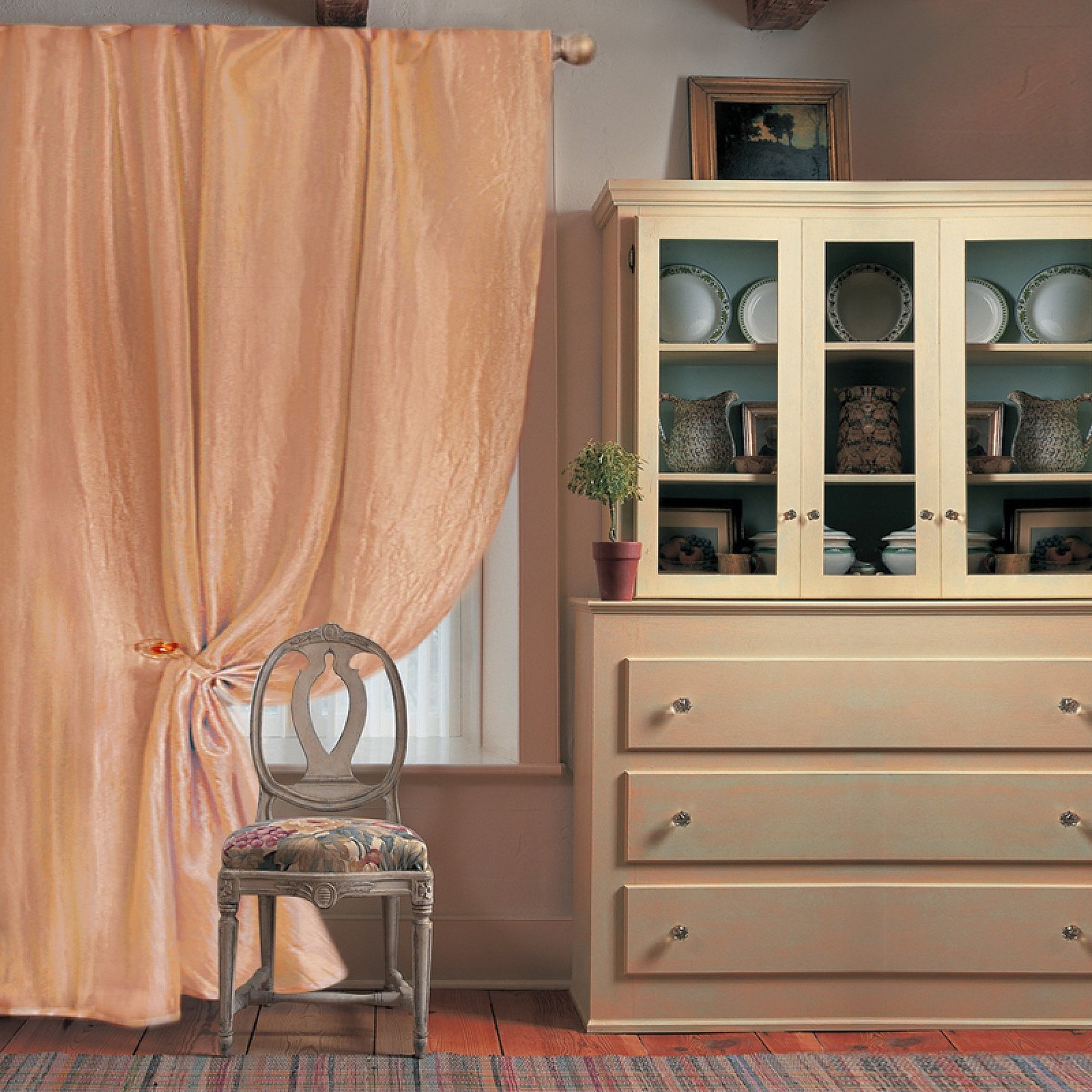
Tricks for sewing from crepe satin
During sewing or use of a garment, the fabric may reveal its shortcomings. Each craftswoman has her own various tricks developed over a long period:
- To prevent the fabric from fraying, the cut can be treated with PVA glue, singed with a lighter, or nail polish applied. The glue does not leave marks on the pattern.
- Use sharp needles #70-80. Rounded knitting needles will damage the structure of the fibers of the fabric, resulting in an unsightly, pulled seam.
- To make the edge of the part look nice, you need to place it between two even sheets of glass and singe the edges.
- When cutting, you can use hot scissors or a soldering iron for creative work. Apply a metal ruler to the cuts of the part and run the soldering iron.
- To prevent the fabric from fraying, it should be pre-sewn with a bias or loop stitch. After finishing the fittings, the seams should be processed with an overlock.
To avoid the product from skewing during cutting, you need to stabilize the fabric. It should lie flat on the table and not shift. To do this, you can spray it with hairspray or soak it in a weak gelatin solution - dilute 3 teaspoons of gelatin in 200 g of water. Leave for 10-15 minutes. Bring to a boil and dilute in 3 liters of warm water.
For your information! Wet the fabric, dry it, iron it and start cutting.
Care of things
Sewing products, accessories made of crepe-satin fabric do not require complex care. The aesthetic appearance will be preserved for a long time if you adhere to certain requirements:
- For hand washing, use only warm water (30-35 ⁰С). Washing in hot water may cause the product to "cook".
- To preserve the color, use vinegar (150-200 ml per 10 l of water) or fabric conditioner.
- Iron only from the reverse side, without waiting for complete drying, and without steam.
- Do not allow water droplets to fall on the fabric. This will result in the entire product being washed.
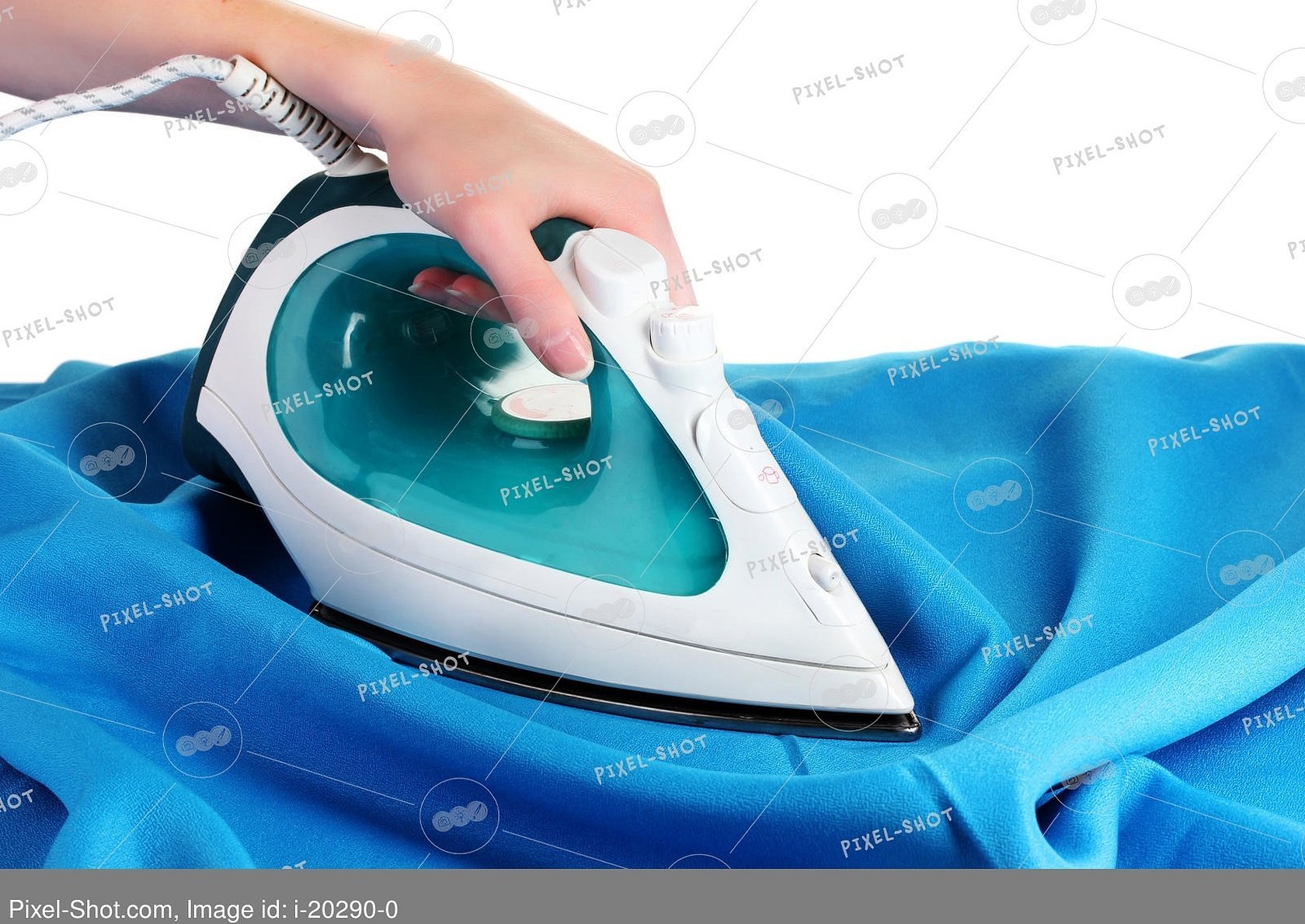
The rules described apply to those who turn to a tailor for work. But today, factory-made products have a label. It indicates all the requirements for caring for the product.
Reviews
Ksenia, 42: "As a tailor, I know all the intricacies of working with this capricious silk. To make garments from crepe satin fabric, I use silk, viscose or cotton threads. Polyester threads tighten the fabric. To prevent this, you need to use tracing paper. When sewing, the paper should be placed above and below where the stitching will go."
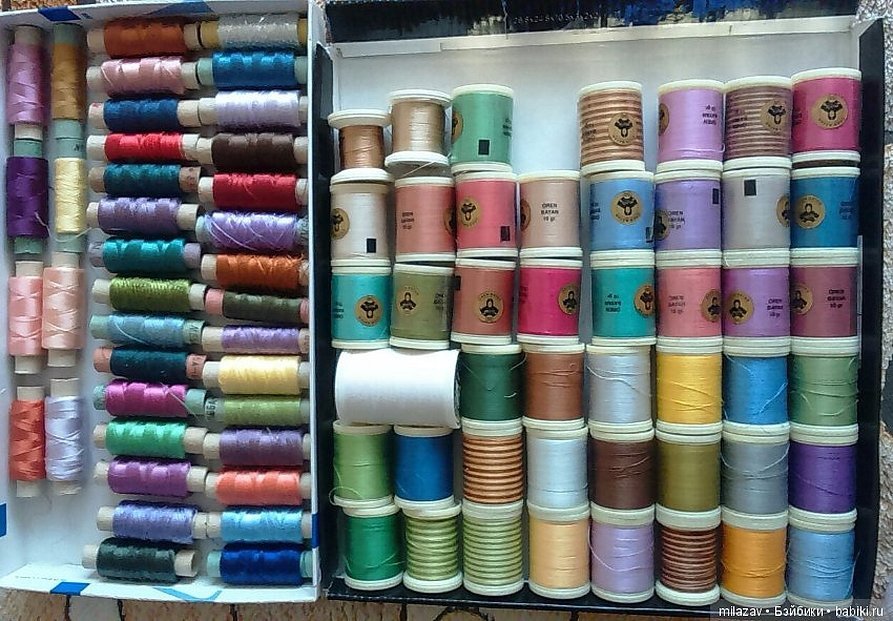
Yana, 27: "We have bed linen. It was a wedding gift from guests 3 years ago. I try to use it during the warm season. It hasn't changed color during this time, it's nice to rest on, and in the summer it brings coolness to the body."
Liliya, 34: “I have an evening dress, but it’s very tight on my figure. I feel a little uncomfortable in it, so I advise all fashionistas to buy items that are not tight on the figure.”
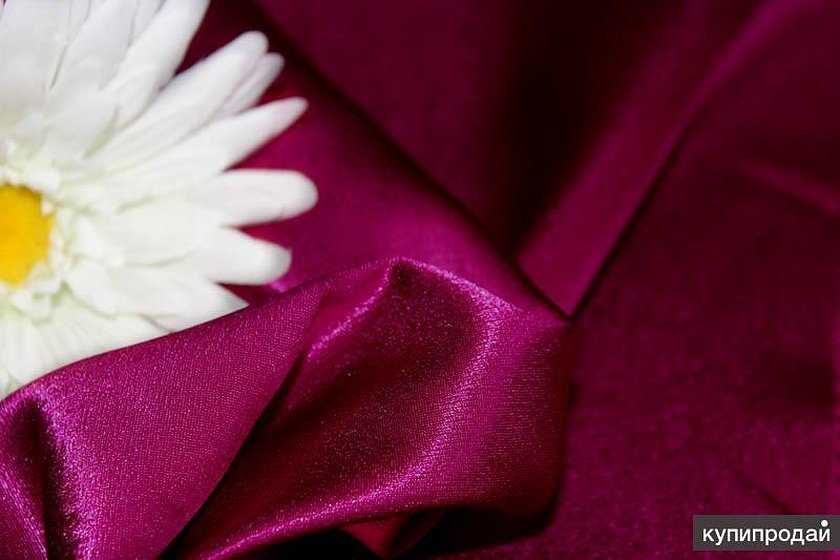
Crepe satin fabric will be in demand for a long time not only among fashion designers, but also among consumers. The presence of outfits in the wardrobes of fashionistas suggests that it has more positive qualities than negative ones.

